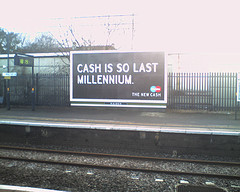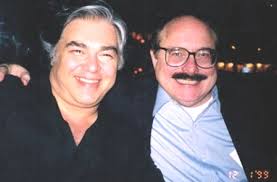August 5, 2016
The central bankers could control everybody by simply eliminating
cash and shutting off their atm & credit cards. This is exactly what they
are planning.
How To Resist Conditioning For The Cashless Society
(Abridged by henrymakow.com)
Within the next few decades, it is likely that there will be no more hard cash (coins/notes) left.
By this point, the notion of using physical money will be a distant memory tinged with disbelief. “How did we ever
manage something so clumsy and backward?” many will say. An
increasing number of people are already saying similar things.
In January, 2016, John Cryan, Chief
Executive of Deutsche Bank predicted that: “Cash, I think, in ten years time probably won’t
(exist). There is no need for it, it is terribly inefficient and
expensive.”
Most of the arguments for a cashless
society sound sensible and logical on first glance.
People who argue against the ‘progress’ and ‘sense’ of this
development have been accused of being backward, suspicious, or
worse. In light of this, it is going to take considerable courage
and character to refuse to conform to the inevitable process
unfolding before our eyes.
This article explores five ways in
which people are being heavily conditioned to accept the cashless
society, and it concludes with what we need to do in order to take a
stand against this.
(1) Rhetoric — The use of violent and aggressive
language consistently gives the impression that Cash is something we
need to treat as an enemy, and thus make war against.
The headline to one article reads: “One
Swede Will Kill Cash Forever–Unless His Foe Saves It From
Extinction.“[1] The article features the story of Abba front man,
Bjorn Ulvaeus, who became a spokesperson for the cashless society
after his son was robbed. Ulvaeus postulated that the chance of this
happening would have been greatly reduced if paper money (exchanged
for stolen items) did not exist. …
2) ‘Reason’ —Here is a line from one Fox News report:
“There is no credible cause for concern about implanting these
tiny microchips under your skin.”[8] As Ellen Brown wrote in her article
“The War on Savings: The Panama Papers, Bail-Ins, and the Push to
Go Cashless”: “It’s all about knowing where the money is and
who owns it, in order to tax it, regulate it, “sanction” it, or
confiscate it.”[19]
Contrary to what the public is being
led to believe, the real “winners” of the war on cash are
not the vast majority of the public. The winners are those
individuals who stand to significantly profit from it – mainly the
banking cartels and those who support their policies.

(3) Ridicule — Mastercard, one of the main financial
institutions propelling the cashless society, commissioned a
billboard advertising their lead debit brand, Maestro, emblazoned
with the slogan: “Cash is so last millennium!” Between the
lines, users of cash were being labelled as archaic and behind the
times.
To many, the colossal elephant in
the room which is being missed is the prophecy in Revelation 13:16-18
and Revelation 14:9-11.[21] The Bible warns of a future scenario
where people are forced to make a choice about their relationship to
the monetary system. In the prophecy, a final world leader makes it
compulsory for everyone to have some kind of mark in their right hand
or in their forehead, without which they can neither buy nor sell.
The Bible warns that God’s wrath will be poured out “without
measure” on anyone who takes that mark. There really is no banking
answer to this prophetic passage, apart from rejecting God and the
Bible.
(4) Repetition — Advertising experts know that if you
repeat a message over and over, it becomes embedded in peoples’
consciousness. Banks, retailers, politicians, and other agencies who
will benefit from the cashless society, have the funds and motivation
to use media outlets and public spaces to sell their products and
proclaim their views. This is where the rhetoric and reasoning for
the cashless society is likely to be repetitively preached, wearing
people down in a war of attrition.
Billions of dollars worth of
advertising is focusing only on the benefits, which are further
enhanced through glossy looks, sex appeal, and other positive images.
Consequently, people’s reality can become sufficiently blurred for
us to all cave in. Repetitive advertising can easily deceive and
condition people to buy something, or believe something, that they
may otherwise not have.
(5) Reality — Spin created to exaggerate the
weaknesses of cash, while exaggerating the benefits of cashless
alternatives, is conditioning people to think differently in order to
get them to act differently. But we are being conditioned to accept
the cashless society even more deeply through circumstances
themselves: The element of choice is quickly being eroded away.
In countries like Denmark thousands of
ATM machines have been physically removed in recent years, making it
more difficult for people to obtain cash there.[29]
In Ireland – a nation among the biggest
users of cash and cheques in Europe – a charge on all ATM
transactions has been introduced in an attempt to encourage people to
go cashless.[30]
Even 10 years ago it would have been
almost unheard of for cash payment of goods and services to be
declined. However, these days, in various sectors of retail and
commerce (especially the Internet), the use of cash is becoming
increasingly more difficult, if not impossible.[31]

(left, Nicholas Rockefeller told Aaron Russo they plan to “chip” everybody.)
In a growing number of cities it is no
longer possible to pay for certain forms of public transport using
cash. Stockholm, for example, has outlawed cash for travel on its
Metro, and in Central London customers are no longer permitted to pay
bus drivers using cash. Alternative means of payment (e.g.
contactless payment) are required for public transport in many major
cities. In some cases where different payment options are still
available, cashless options (e.g. London’s “Oystercard” or
Sydney’s “Opal card”) are incentivised by making them
considerably cheaper.[32]
It follows that the harder and more
expensive it gets to use paper money and coins – as more tax is put
on it, as fewer outlets allow it, and as retailers and authorities
become more suspicious of it – the more people will be forced to use
alternative forms of digital payment, if they wish to continue with
their lifestyle.
In light of this, when we are told (for
the umpteenth time) that “more and more people are choosing to go
cashless?” we need to seriously question how honest a picture this
is. For many people, the “choice” to go cashless is being
dictated by circumstances that they have little or no control over.
CONCLUSION
We have explored five ways in which the
banks and their allies have been conditioning the world to accept the
cashless society as the next, inevitable step toward the Mark of the
Beast. They have used rhetoric to play on our fears and emotions;
some impressive reasons to prove they have considered and dealt with
all potential problems; ridicule to discredit opponents; and then
they have brainwashed us by repeating these strategies over and over
ad infinitum. The end result has been an over-powering reality which
is going to force everyone to give in and do it their way in the end.
Footnotes are with the original version.
First Comment by Dan
In 1982 as employee of a bank I attended seminars given by the the American Institute of Banking. They were quite awaking for me at that age. We were informed that yes, the banks and governments planned a cashless, paperless society. The speakers always came in pairs, from government agencies; the Treasury, DoJ, FBI.
In 1982 banks still processed every transaction on paper with the exception of wire transfers. At my desk still stood an IBM Selectric typewriter and electric adding machine with a paper spool. I balanced the bank’s daily transaction ledger on a Burrough’s Double Ledger accounting machine the size of Hammond Console Organ. There were dozens of paper pushers producing stacks of paper and buckets of paper trash. So the Plan’s “Job One” was “the paper’s gotta go”.
If you remember 1982, personal computers didn’t have hard drives yet, and a new Apple II plus with 128K RAM cost over a thousand dollars. If you said “Internet” people thought you meant a hair spray. But the banking trainers outlined the long term plan that we’re still living through. First, ATM cards to develop in the public a preference for “the convenience” of non-cash transactions. Back then most people didn’t quality for credit cards. The plan required EVERYONE to use plastic by “the year 2000”. After that the plan to phase out currency would commence.
The seminar spokesman told us that in 1972, a department in the Pentagon asked the RAND Corporation think tank to come up with a system that could track every adult US Citizen in ‘real time’, yet not violate their Constitutional Right to privacy. The result in a decade’s time was the Automated Teller Machine with computer-linked plastic debit card.
As bank employees, we’d assumed that the ATM was developed by big banks merely to replace human tellers with automation, and nothing else. But that was only the “gravy”, just side ‘benefit’. But now that you know the truth it should give you insight to see that when you use THEIR technology you give up ALL control, all privacy. That’s what the Cashless Society is for. They will know all about you and everything you do. But the worst is yet to come. When there’s no cash, your power to accumulate wealth will become a thing of the past. You can wake up and find a zero balance. And the more power they have and more powerless you become, it will all be over.
The only way to fight this is to opt out every way you still can. Don’t be a sucker for ‘convenience’. It’s a trap.
The Plan for the Cashless Society that I learned about in those 1982 banker seminars can be found in Bertrand Russell’s 1931 Book, ‘The Scientific Outlook’.
Source Article from http://henrymakow.com/2016/08/Soicety-is-Being-Weaned-off-Cash.html
Views: 0
 RSS Feed
RSS Feed

















 August 6th, 2016
August 6th, 2016  Awake Goy
Awake Goy  Posted in
Posted in 
















